45 past participle label
Label Past Tense: Conjugation in Present, Past & Past Participle Tense ... past tense of label is labelled ( UK, some US ) or labeled ( US ). Label verb forms Conjugation of Label Simple / Indefinite Present Tense He/She/It labels . I label. You/We/They label. Present Continuous Tense He/She/It is labelling ( UK, some US ) or labeling ( US ). I am labelling ( UK, some US ) or labeling ( US ). Label past tense and past participle in English. label verb forms ... The past participle of label is labelled or labeled. Verb Tenses Past simple — label in past simple labelled, labeled. (V2) Future simple — label in future simple label. (will + V1) Present Perfect — label in present perfect tense labelled, labeled. (have\has + V3) Past Perfect — label in past perfect tense labelled, labeled. (had + V3)
Labeled or Labelled—Which Is Correct? | Grammarly Labeled and labelled are both correct spellings, and they mean the same thing. How you spell the word depends on your audience. If you are writing for American readers, labeled is the preferred spelling. In other places, such as Great Britain and Canada, labelled is a more common spelling than labeled. Even though the jar was labeled as flour ...

Past participle label
What is the past participle of "beat"? - scribbr.com The past participle form of "ride" is ridden. It's used to form perfect tenses (e.g., "I have ridden on an elephant before") and to form the passive voice (e.g., "The bike hasn't been ridden in a long time"). It's wrong to use the past simple form "rode" instead in these contexts. For example, "The bike hasn't been ... Conjugation of label - WordReference.com label It is conjugated like: travel In American English, the preferred spelling does not include a doubled final consonant before -ing or -ed. infinitive: present participle: past participle: (to) label labeling labeled definition in Spanish in French in Italian Indicative Perfect tenses Continuous (progressive) and emphatic tenses LABEL (verb) definition and synonyms | Macmillan Dictionary 2 to use a word or phrase to describe someone or something, especially one that is not completely fair or true label someone/something as something: We shouldn't label these boys as criminals so early in their lives. label someone/something something: Her latest movie has been labelled a disaster by the critics. Synonyms and related words
Past participle label. Past Participle: Definition and Examples - Grammar Monster A past participle is a word with the following three traits: It is formed from a verb. It is used as an adjective or to form verb tense. It probably ends "-ed," "-d," "-t," "-en," or "-n." Table of Contents A Closer Look at a Past Participle Find the Past Participle Test Examples of Past Participles Used as Adjectives label - Wiktionary label ( third-person singular simple present labels, present participle (UK) labelling or (US) labeling, simple past and past participle (UK) labelled or (US) labeled ) ( transitive) To put a label (a ticket or sign) on (something). The shop assistant labeled all the products in the shop. Gerunds, Participles, and Infinitives Explained - ThoughtCo Exhausted is a past participle, formed by adding -ed to the present form of the verb (exhaust). Both participles modify the subject, children. All present participles end in -ing. The past participles of all regular verbs end in -ed. Irregular verbs, however, have various past participle endings—for instance, thrown, ridden, built, and gone. Participles - Purdue OWL® - Purdue University - Purdue Writing Lab A participle is a verbal ending in -ing (present) or -ed, -en, -d, -t, -n, or -ne (past) that functions as an adjective, modifying a noun or pronoun. A participial phrase consists of a participle plus modifier (s), object (s), and/or complement (s). Participles and participial phrases must be placed as close to the nouns or pronouns they modify ...
Participle: Definition, Types, and Examples | Grammarly The past participle is used in the perfect tenses or as an adjective describing an action that has already been completed. It's also a key component in using the passive voice, which we explain further down. I have completed my paper already. I turned in my completed paper. Participles - Present, Past and Perfect - Lingolia What is a participle? Participles are verb forms that function as adjectives, nouns or as part of a compound verb tenses. There are three kinds of participles in English grammar: present participle or -ing form, past participle and perfect participle. We can use participles to form participle clause s which shorten complex sentences. label - Simple English Wiktionary Past participle labeled Present participle labeling (transitive) If you labelsomething, you write information on it or attach information to it. Please be sure to labelyour bags before getting on the airplane. He labelledthe tree with its name and date. (transitive) If you labelsomebody or something as being some way, you categorizethem that way. Understanding the Past Participle - VOA Most English tenses use a word form called a "participle.". There are present participles and past participles. Take the statement "I have been to Atlanta.". It uses "been," which is ...
Conjugación label | Conjugar verbo label inglés - Reverso Past participle labelled Modelo : gel Auxiliar : have, be Otras formas: label oneself / not label Contracciones Publicidad Indicative Present I label you label he/she/it labels we label you label they label Preterite I labelled you labelled he/she/it labelled we labelled you labelled they labelled Present continuous I am labelling you are labelling What Is A Past Participle? | Thesaurus.com A past participle is used as an adjective and to construct the perfect verb tenses. Learn how to form past participles and use them in a sentence. Grammar: Verb Forms: "-ing," Infinitives, and Past Participles Here are six common uses of the "-ing" form: 1. The "-ing" form is used in progressive verb tenses with auxiliary verbs (helping verbs). These are in active voice. Here are some examples: I am doing my homework.; I have been writing all day.; I was writing when the pizza arrived.; 2. The "-ing" form can function as a noun.These nouns are called gerunds and can be the subject of a clause ... What Is a Past Participle? | Definition & Examples A past participle is a word derived from a verb that can be used as an adjective, to form perfect verb tenses, and to form the passive voice. It is one of two types of participles, along with present participles. The past participles of regular verbs are usually formed by adding the suffix "-ed" (e.g., "learn" becomes " learned ").
label | meaning - Cambridge Learner's Dictionary label noun [C] (WORD) a word or phrase that is used to describe the qualities of someone or something, usually in a way that is not fair: He seems to be stuck with the label of ' troublemaker '. label noun [C] (MUSIC) B1 a company that records and sells music: They've just signed a deal with a major record label. label verb [ T ]
Conjugation Label 🔸 Verb in all tenses and forms | Conjugate in past ... Conjugation of the verb Label in all tenses: future, present and past. 🎮 Conjugation trainer for memorizing forms. LinguaBooster LB learning foreign languages. ... Past Simple Past Participle Gerund. Simple tense . Present Simple Past Simple Future Simple. Continuous tense .
Past Participles Definition - Grammar Terminology - UsingEnglish.com A) The Past Participle is used for all perfect forms of the verb: 1 Present Perfect . eg: I have taken . 2 Past Perfect . eg: I had taken . 3 Future Perfect . eg: I will have taken . 4 Conditional Perfect or the 3rd Conditional . eg: I would have taken . B) The Past Participle is used in the Passive with the verb 'To Be' in most aspects and ...
Past participle Definition & Meaning - Merriam-Webster The meaning of PAST PARTICIPLE is a participle that typically expresses completed action, that is traditionally one of the principal parts of the verb, and that is traditionally used in English in the formation of perfect tenses in the active voice and of all tenses in the passive voice. How to use past participle in a sentence.
LABEL (verb) definition and synonyms | Macmillan Dictionary 2 to use a word or phrase to describe someone or something, especially one that is not completely fair or true label someone/something as something: We shouldn't label these boys as criminals so early in their lives. label someone/something something: Her latest movie has been labelled a disaster by the critics. Synonyms and related words
Conjugation of label - WordReference.com label It is conjugated like: travel In American English, the preferred spelling does not include a doubled final consonant before -ing or -ed. infinitive: present participle: past participle: (to) label labeling labeled definition in Spanish in French in Italian Indicative Perfect tenses Continuous (progressive) and emphatic tenses
What is the past participle of "beat"? - scribbr.com The past participle form of "ride" is ridden. It's used to form perfect tenses (e.g., "I have ridden on an elephant before") and to form the passive voice (e.g., "The bike hasn't been ridden in a long time"). It's wrong to use the past simple form "rode" instead in these contexts. For example, "The bike hasn't been ...


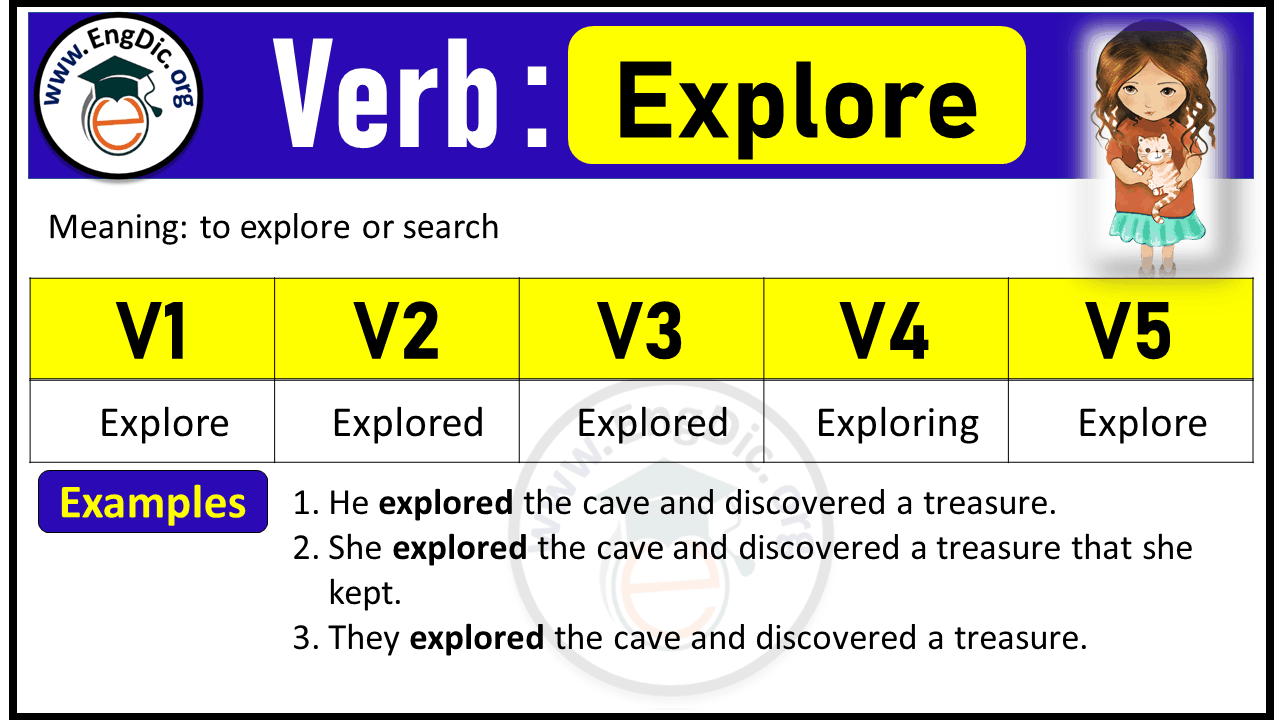
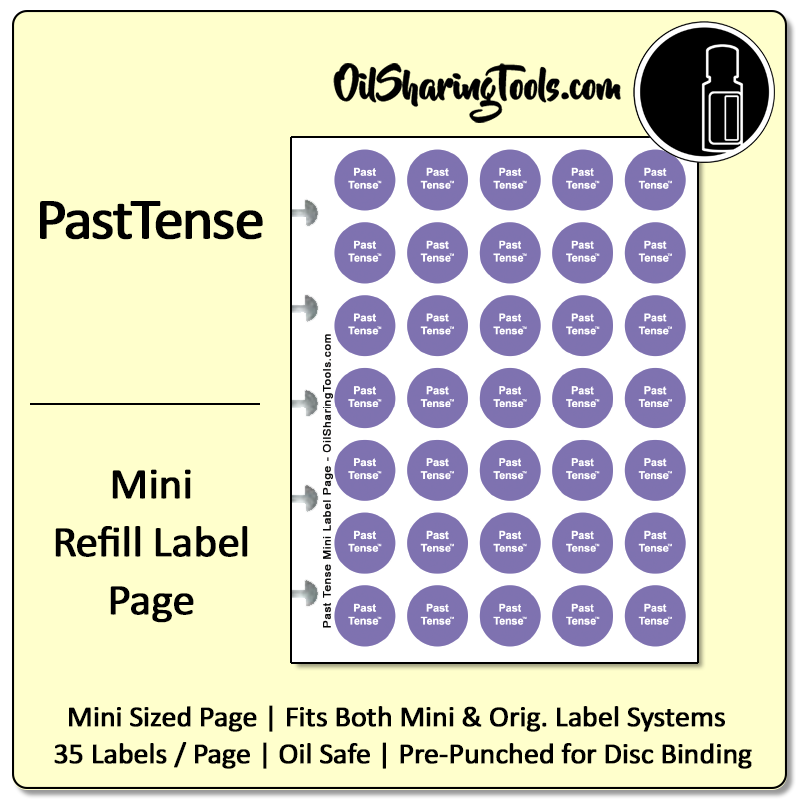
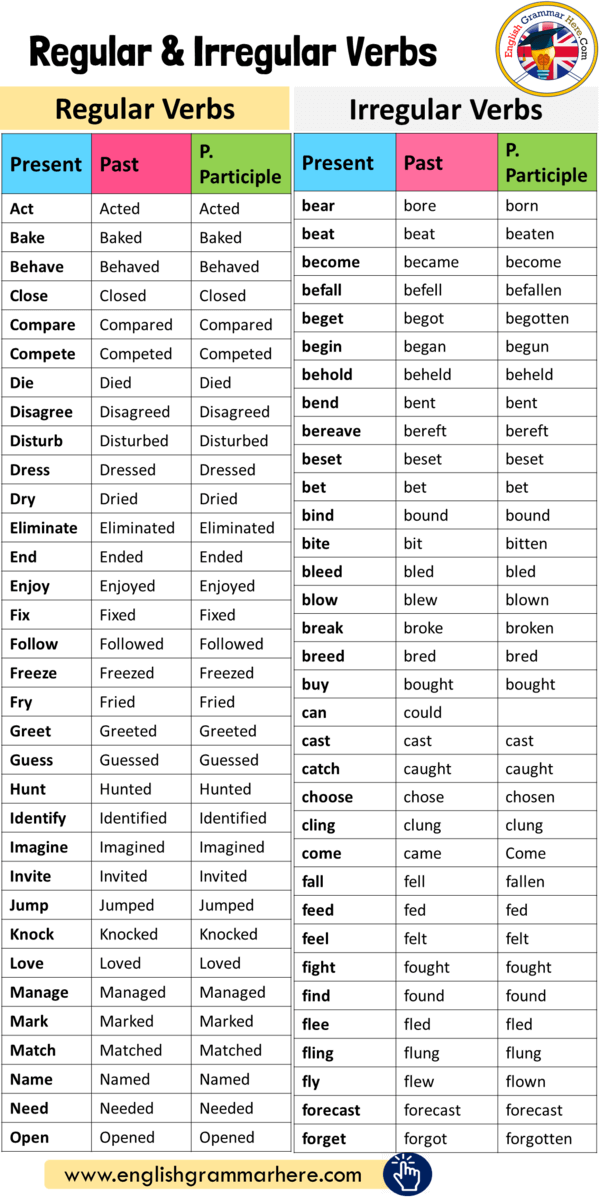
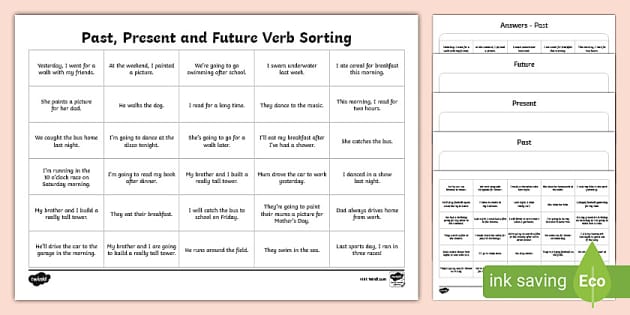


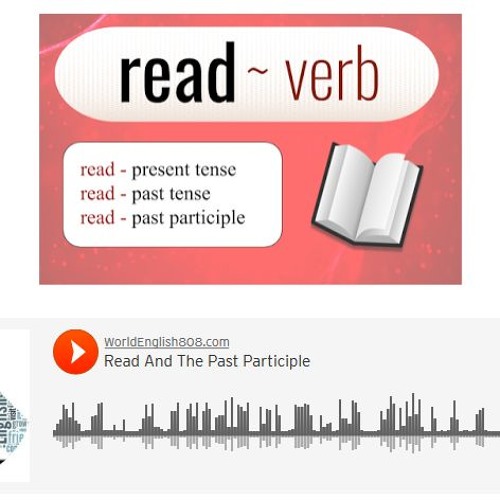



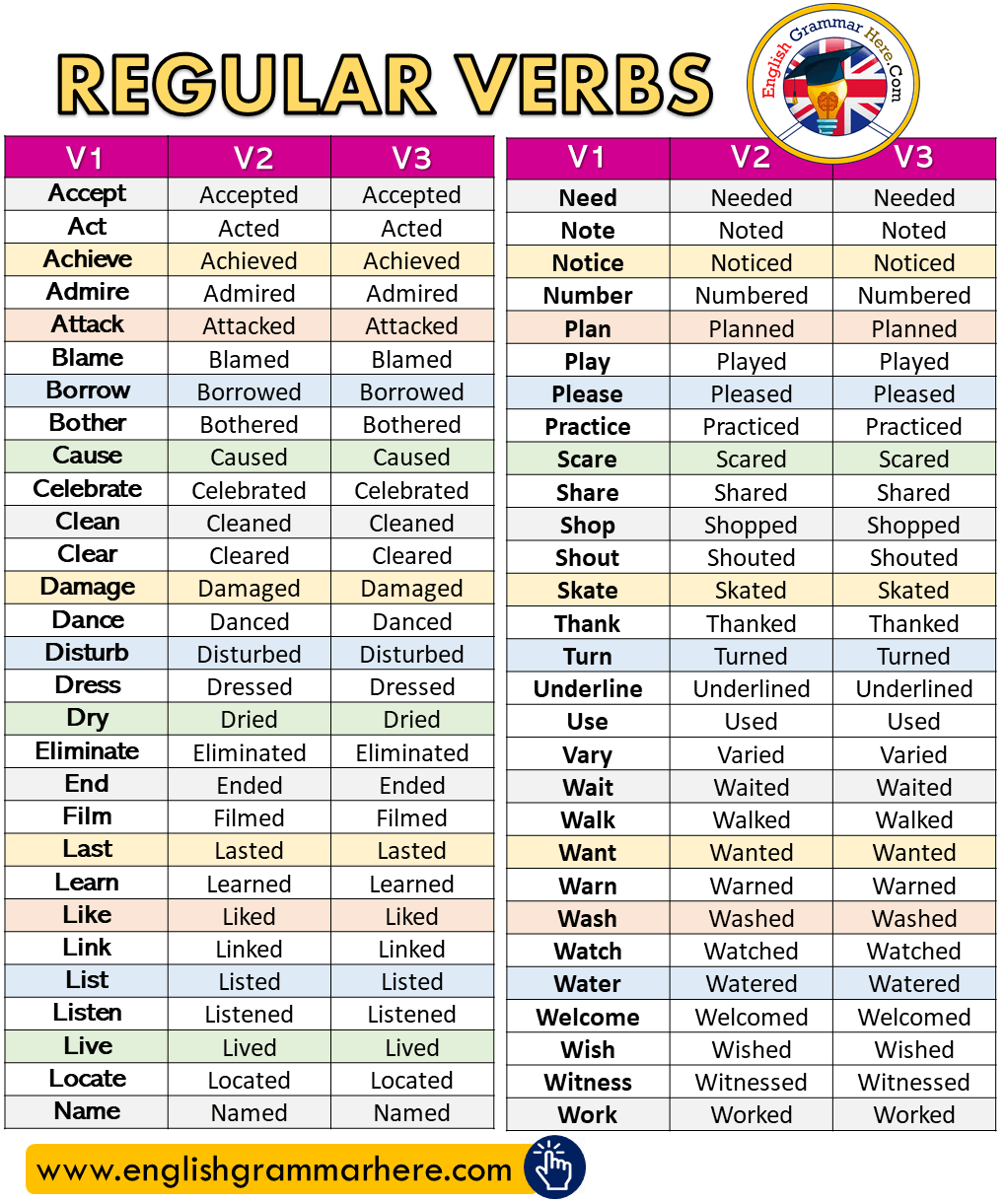

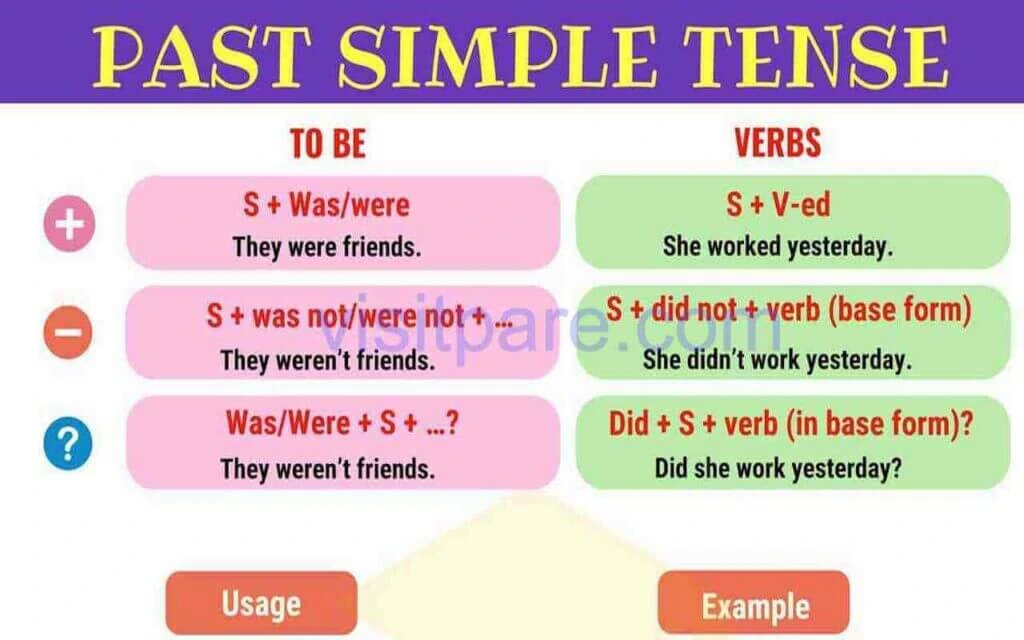
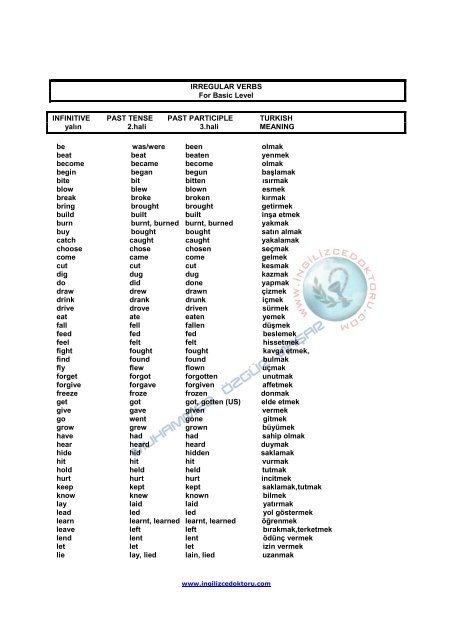

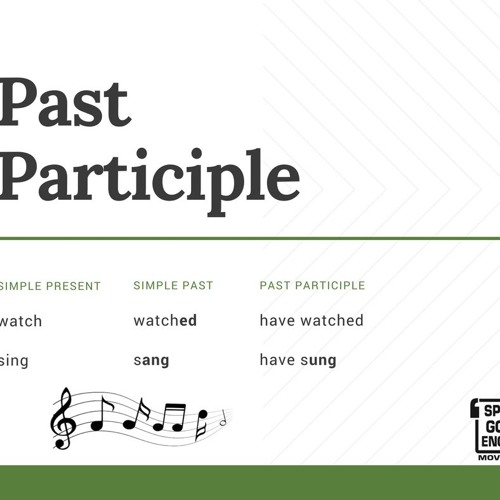
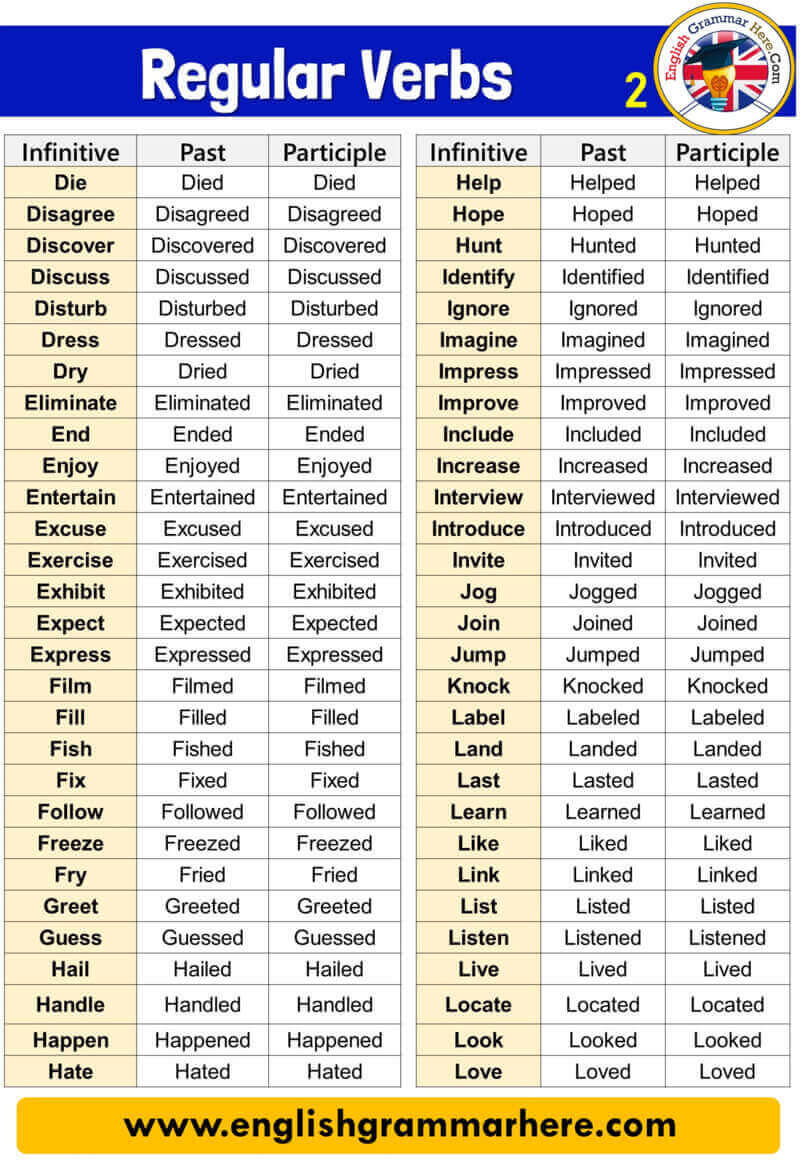
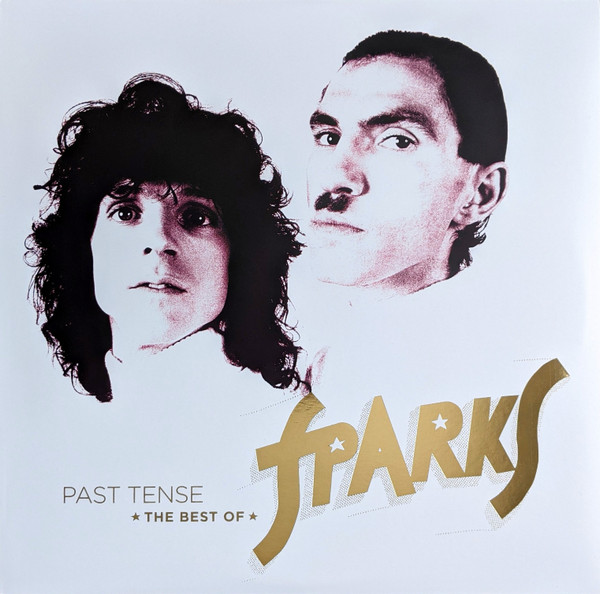
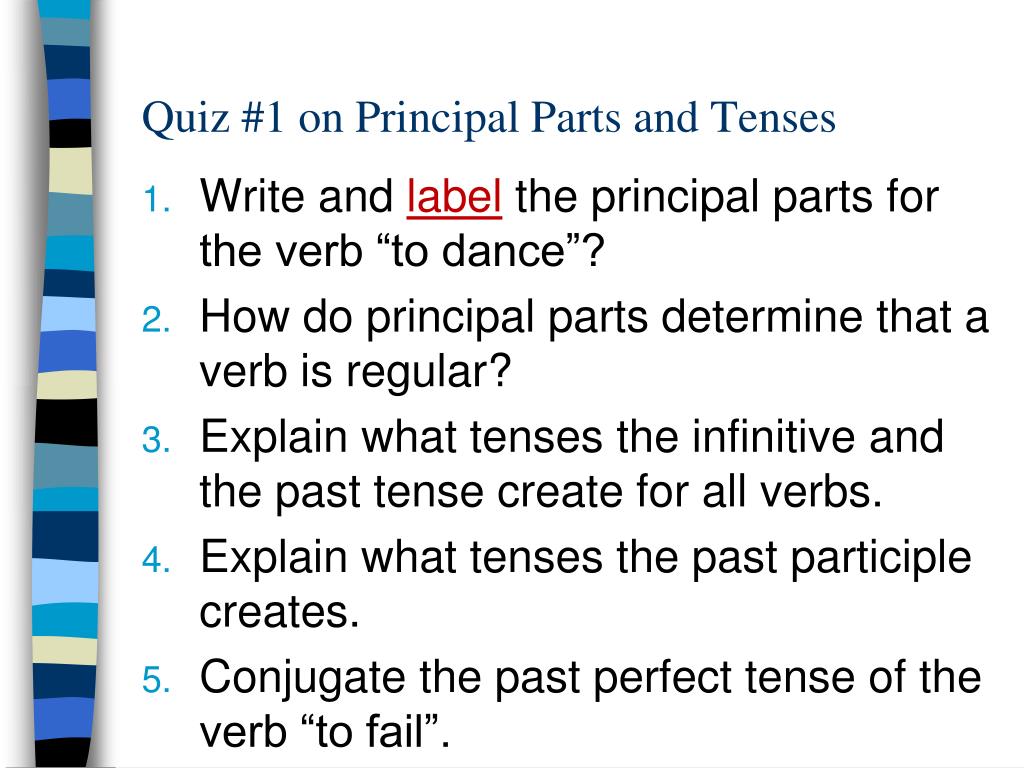



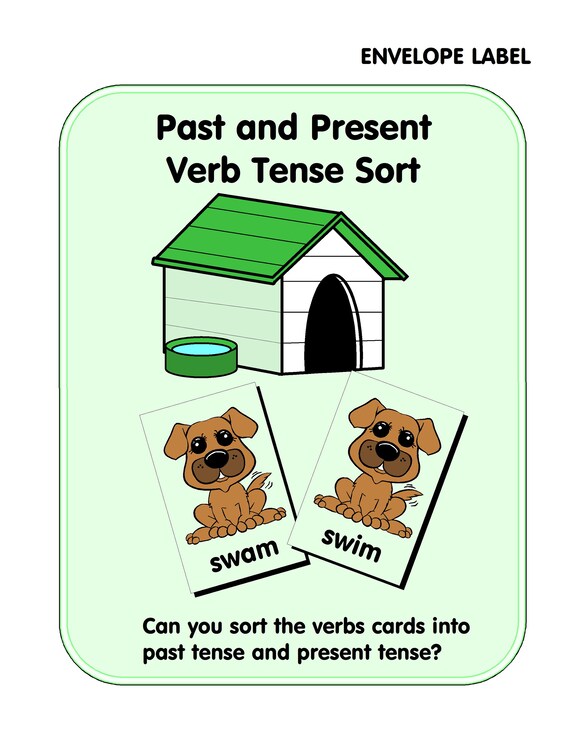

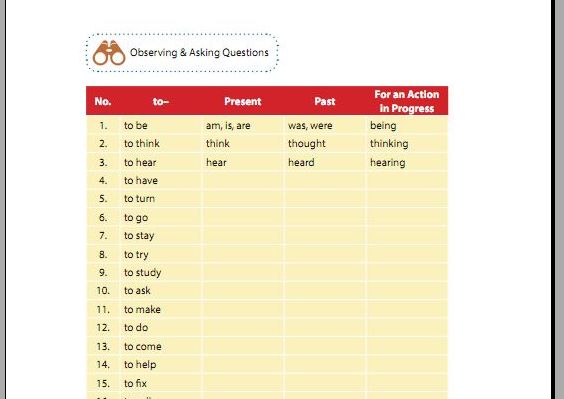


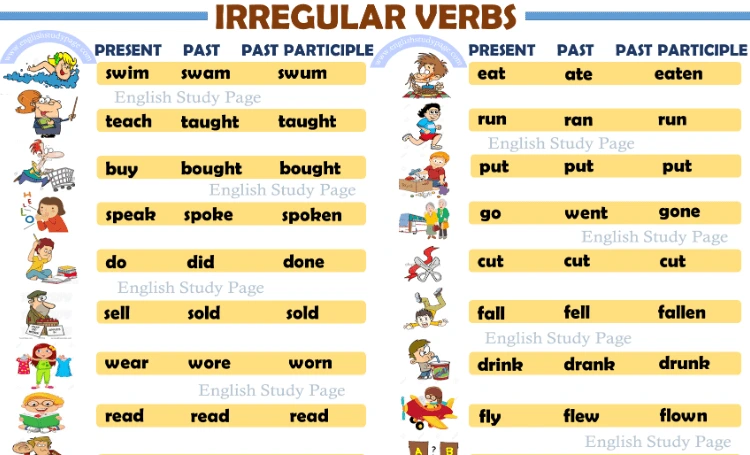
![Action verbs[1] regular irregular simple past and present perfect](https://image.slidesharecdn.com/action-verbs1regularirregularsimplepastandpresentperfect-130215123212-phpapp01/75/action-verbs1-regular-irregular-simple-past-and-present-perfect-2-2048.jpg?cb=1666612263)

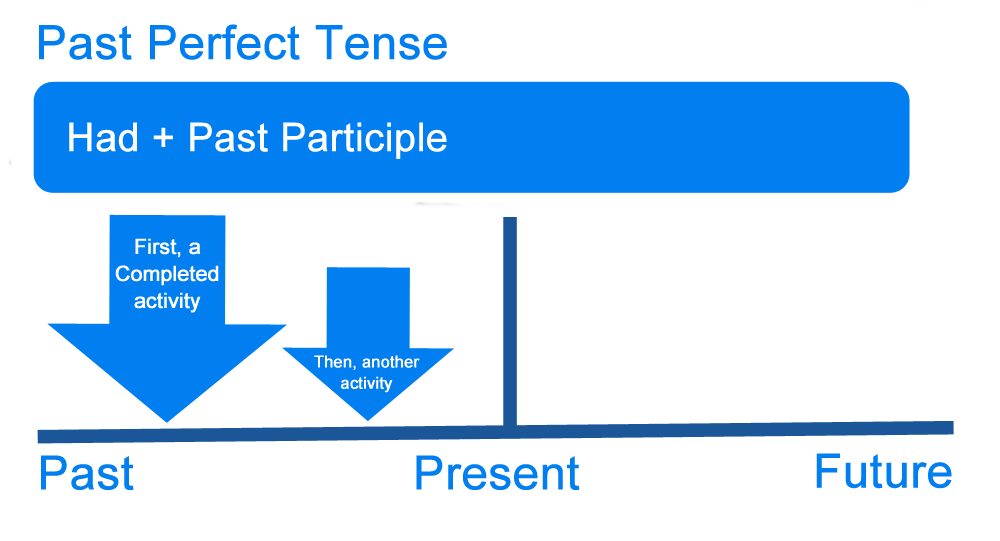


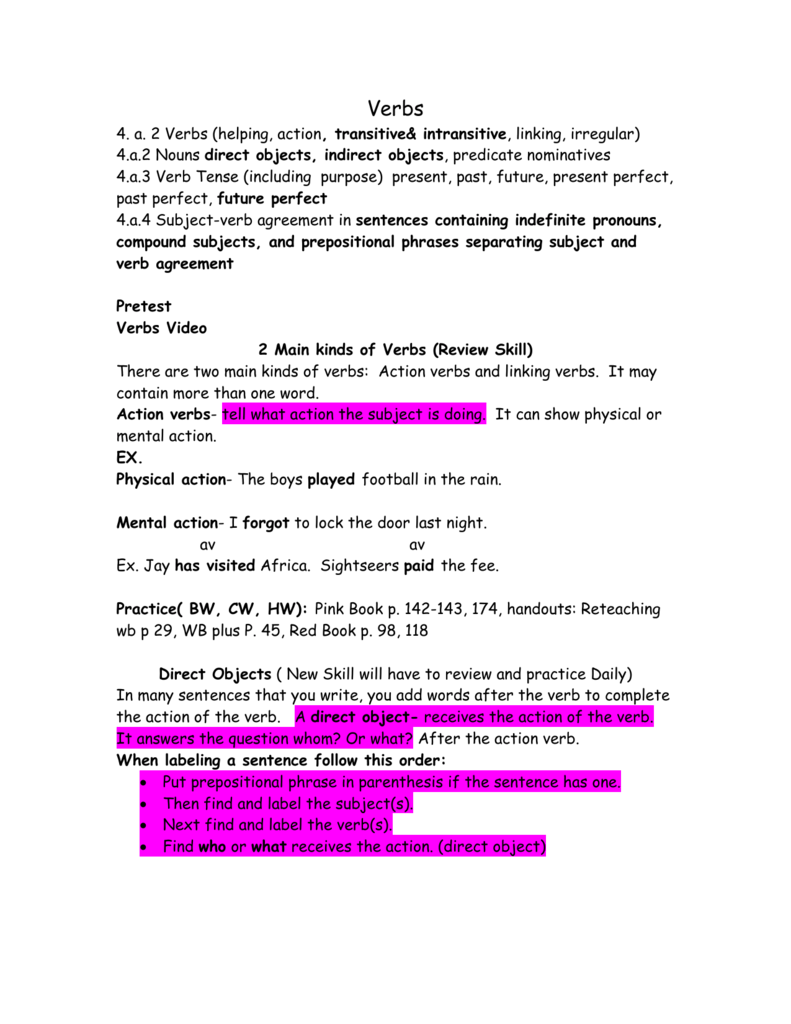


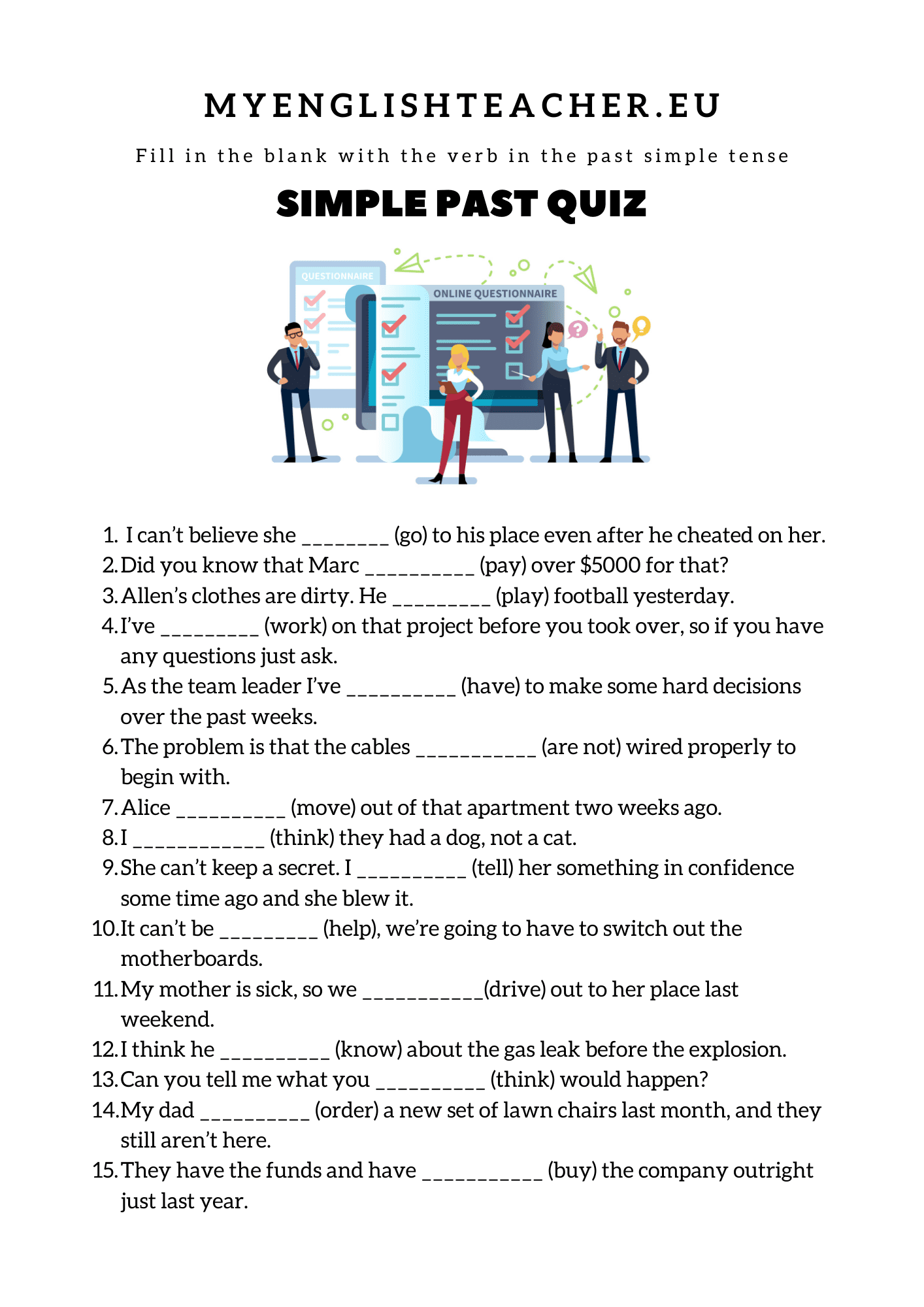

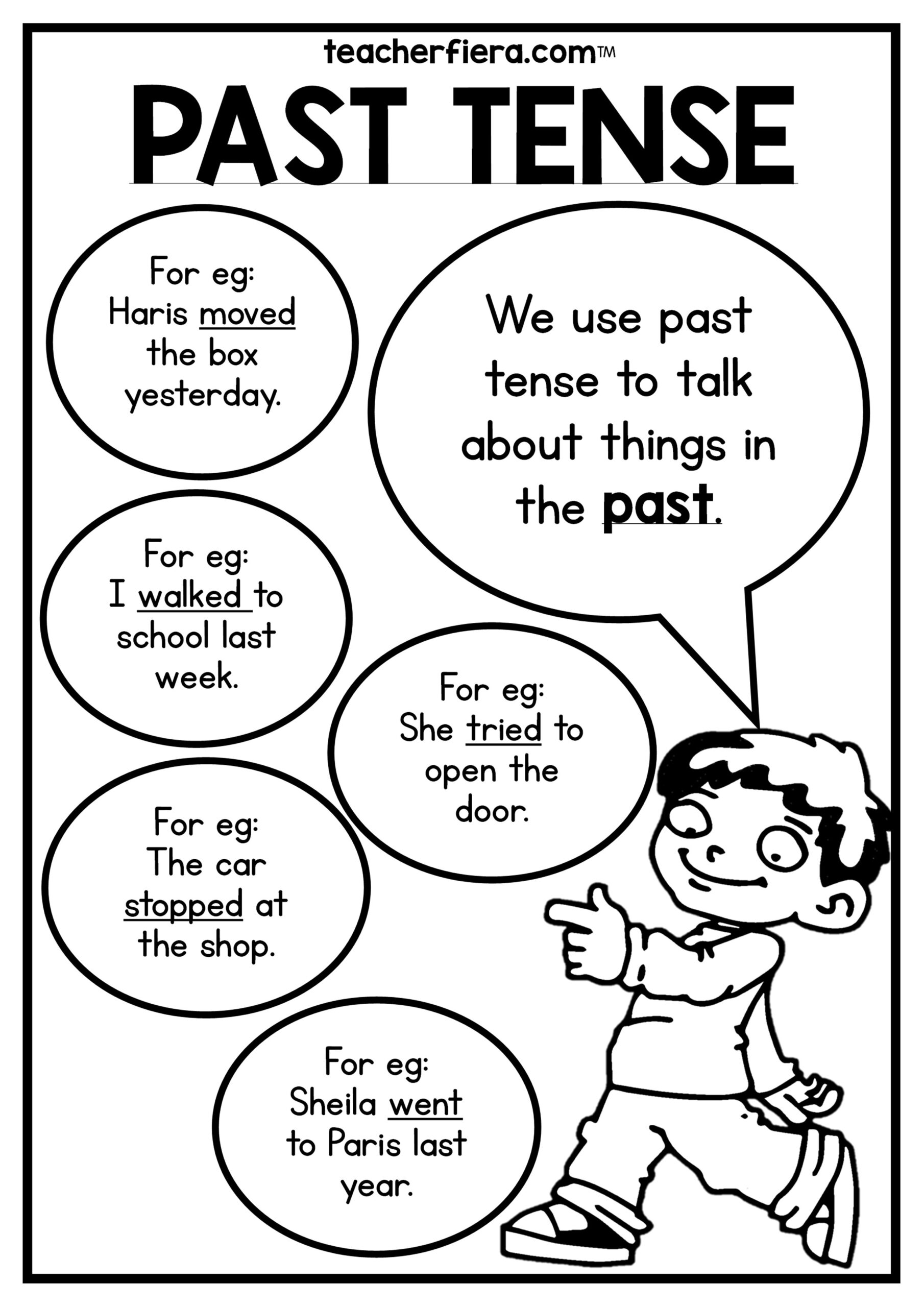
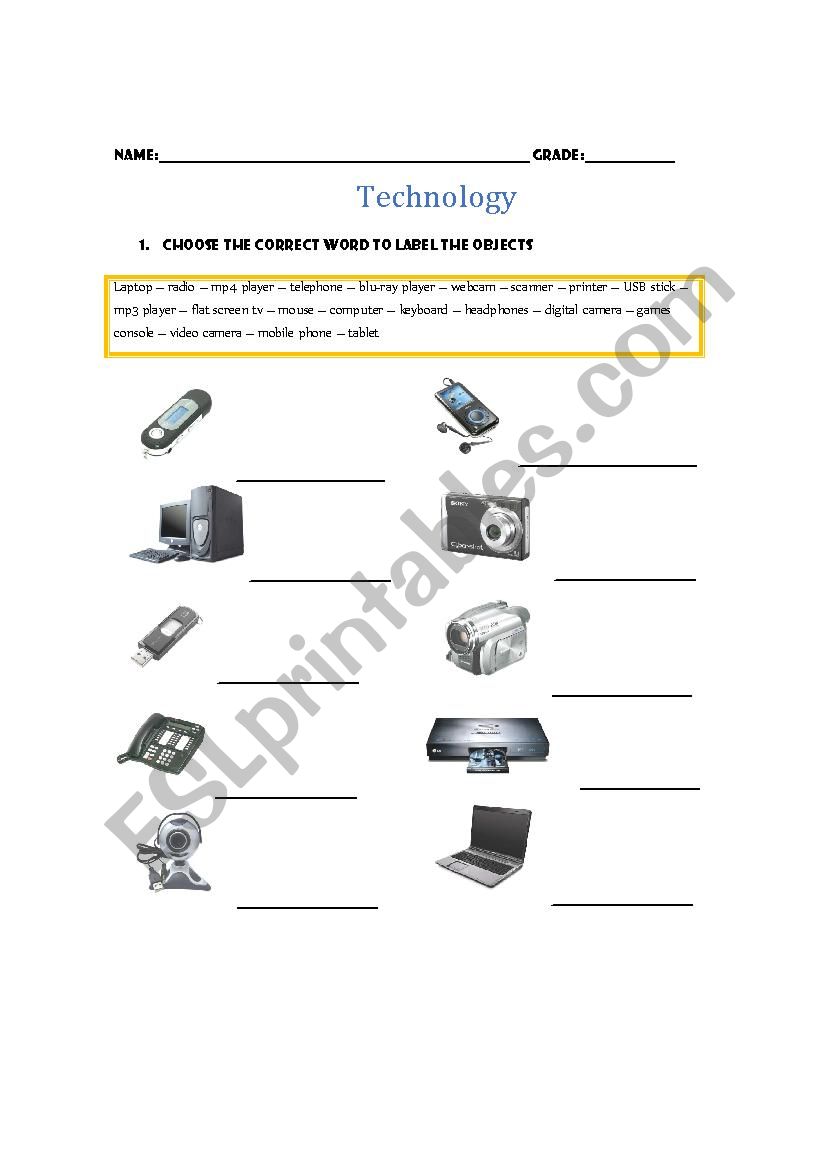
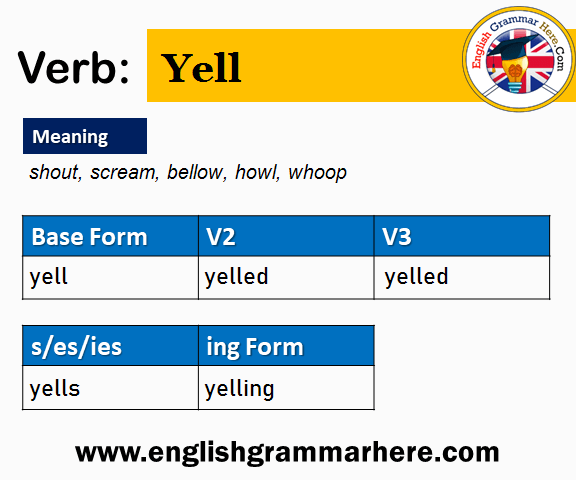
Komentar
Posting Komentar